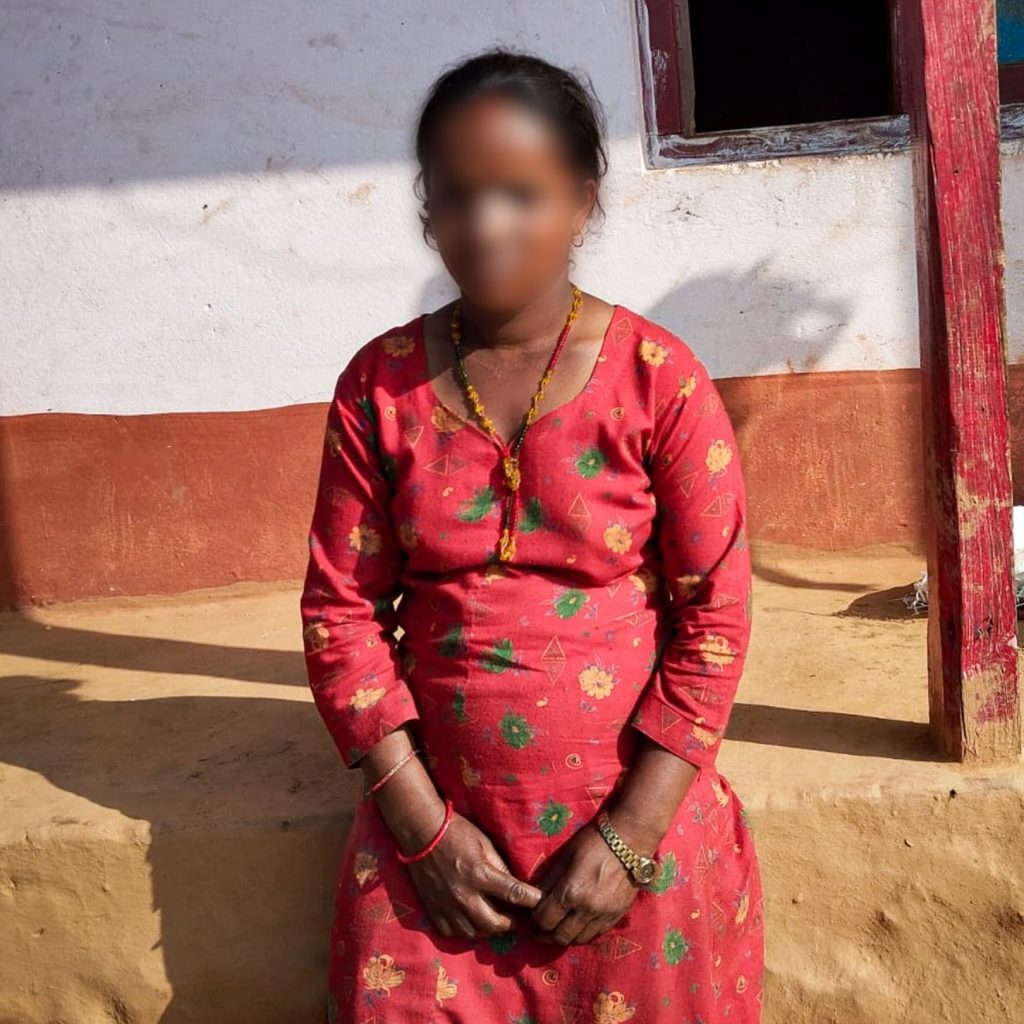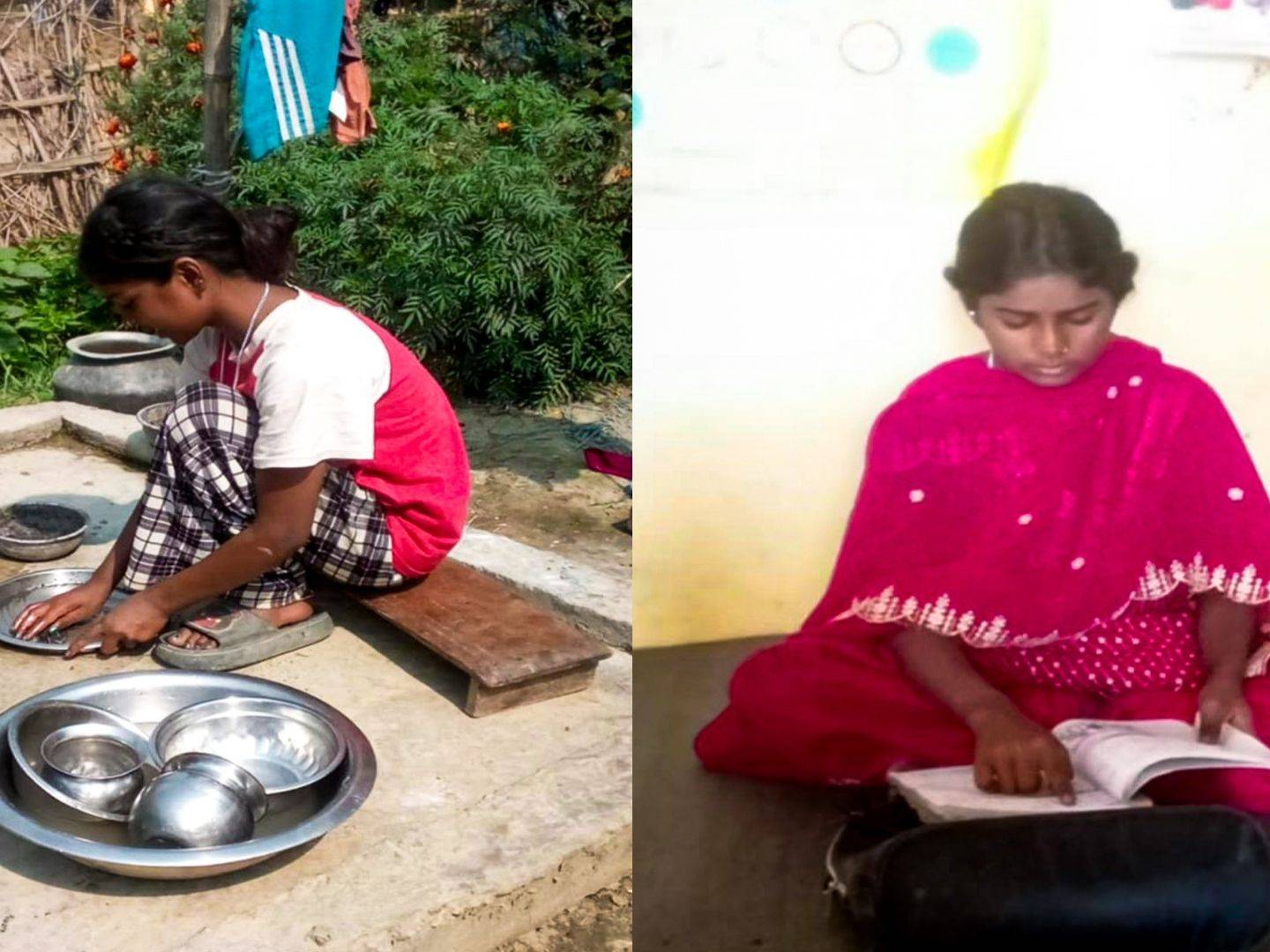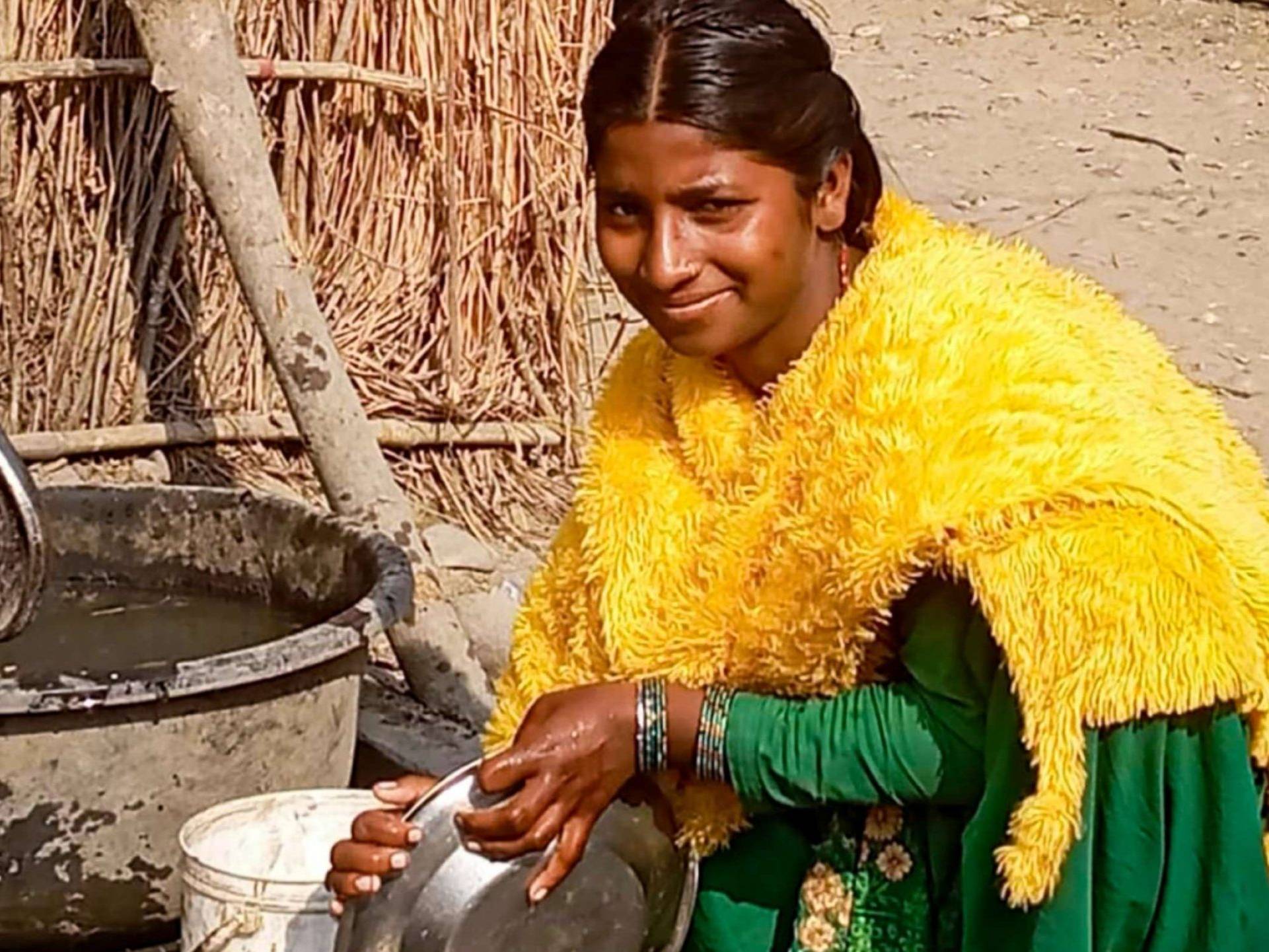The Nepal Police reported that 78% of all cases of violence against women are domestic violence—making it one of the leading causes of injury to women in Nepal. In 2018 alone, 17,774 cases of domestic violence against women were reported. In a country where women are shamed for speaking up, these numbers show how many women stood their ground and made their suffering known.
Sunita (34) is one of those brave women who made sure her voice was heard. She had endured domestic violence for most of her life. We met her during our two-day anti-human trafficking training, and there, she shared her story.
Sunita was a child bride. When she was just 14, she was married off to an older man. Her community is a known marginalized area and child marriage was too common for anyone to bat an eye. In fact, families were even considered blessed to have even one daughter to marry off, because that meant one less mouth to feed. But to Sunita, she already knew she did not deserve this, but did not have a lot of choice.
The marriage was not Sunita’s choice, but somehow she was the one discriminated for it. She faced caste-based discrimination, which basically meant people were treating her terribly because she was poor. She kept it all in, because retaliating at that time would have caused her more harm than good. In her marriage, she was treated nothing short of a baby machine. In Nepali culture, sons are more important than daughters, as you may have observed from Sunita’s experience. So when she gave birth to three daughters, you can imagine how frustrated her husband, and her in-laws were. As if it were her fault, she was beaten up for having three daughters—a truly pathetic excuse for a man like him to commit violence.
Years later, she finally birthed a son. She thought this would please everyone, or at least make them hurt her less—but no. She shouldered most of her children’s living costs due to her husband not making or giving them much. She often worked in fields as a daily laborer, sometimes taking her eldest daughter along to help. There was no day for her to rest her emotions. From the moment she was born up until that moment, she felt subjected to the cruelty of the people around her.
One segment of our program includes a storytelling session on domestic violence and human trafficking. She thought she finally found a safe space to share her dire experience, so she recounted them all, uncontrollably breaking into tears from years and years of suppressed pain. Her pain was gently accepted, and she felt a deep sense of relief and empowerment.
On the second and last day of the training, Sunita expressed her heartfelt thanks to us for providing her the avenue to release what she had been holding back for years. She mentions finding comfort and inspiration to fight against domestic violence and human trafficking in her community. From that moment forward, she no longer feels alone—because she has us.

Our Partner

Be a Part of the Solution
Support the Captivating Village Development Program to help secure education for out-of-school village girls and provide families with the tools they need to escape extreme poverty.
Sustainable solutions start with your help.



